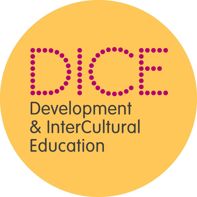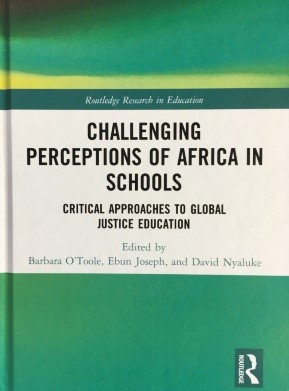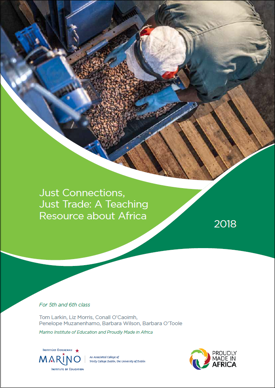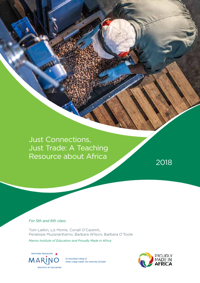
Resources
Book publication

Challenging Perceptions of Africa in Schools: Critical Approaches to Global Justice Education. 2020. Edited by Barbara O’Toole, Ebun Joseph and David Nyaluke
Series: Routledge Research in Education
This book challenges educational discourse in relation to teaching about Africa at all levels of the education system in the Global North, with a specific case study focus in the Republic of Ireland. This book will appeal to academics, researchers and post-graduate students in the fields of education and teacher education.
Resource publication
Just Connections, Just Trade: A Teaching Resource about Africa has been written to support 5th and 6th class primary school teachers in teaching about the wider world and in developing global citizenship in relation to curricular areas such as SESE and SPHE. It examines topics such as interdependence and globalisation, trade relationships, and consumer choices, in child-friendly language, and through a range of active and participative methodologies designed to enable children to understand and engage with complex issues. It examines global trade issues while promoting a view of African countries as equal trade and economic partners.
The pack was written by: Tom Larkin, Liz Morris, Conall O'Caoimh, Penelope Muzenenhamo, Barbara Wilson, and Barbara O'Toole.
The Irish-language version: Naisc Chóra, Trádáil Chóir - Acmhainn Teagaisc Faoin Afraic was published in 2021.
Resource publication
Education for Action on Climate, by Max Paoli and Giulia Gennari
Education for Action on Climate: A Teaching Module, written by Max Paoli and Giulia Gennari, was published in November 2021. Its purpose is to provide basic knowledge on climate change and promote reflections and awareness. The module is aimed at 12+ age groups but can be used with younger children who have a good grounding in the SDGs and climate issues. The resource comprises introductory sections on climate action, ESD, and integrating ESD into school systems, followed by eight lesson plans on topics related to climate action. It concludes with a section on resources for further learning, apps to support teaching/learning, and ideas for projects.
The module can be access via the following link: https://www.regione.fvg.it/rafvg/cms/RAFVG/istruzione-ricerca/regione-per-scuole/FOGLIAII/articolo.html



